How to Use だから (dakara) – “So” / “That’s Why” in Japanese
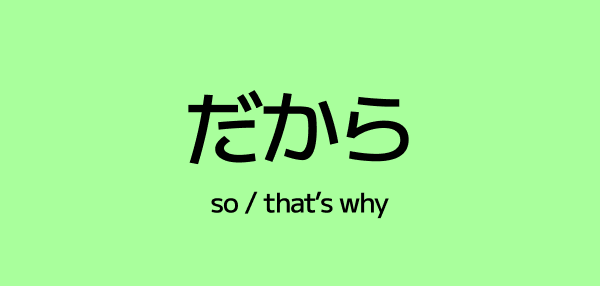
Ever wanted to explain why something happened? Or connect your ideas with a simple "so" or "that's why"?
In Japanese, that's where だから (dakara) comes in. It's one of the easiest and most common ways to show cause and effect.
In this guide, you’ll learn:
- Whatだからmeans
- How to use it naturally in conversation
- When to useだからvsから
- Real-life examples (plus a fun Japanese drink!)
Let’s dive in 👇
What DoesだからMean?
だから means “so” or “therefore.” It connects two sentences, where the second one is a logical result of the first.
It’s casual, but polite enough for most everyday situations.
Example:
きのう は あめ でした。だから、でかけませんでした。 Kinou wa ame deshita. Dakara, dekakemasen deshita. It rained yesterday. So, I didn’t go out.
How to UseだからCorrectly
✅ Use it between two full sentences
It starts the second sentence — don’t use it in the middle!
Correct:
ねむい。だから、コーヒをのむ。 I’m sleepy. So, I’m going to drink coffee.
Incorrect:
ねむいだからコーヒ を のむ。 ← Sounds weird & grammatically incorrect ❌
🤔 What If You Want to Say It in One Sentence?
When you want to express "because" mid-sentence (not at the start), use 〜から instead of だから.
Example:
あつい。だから、うみにいきたい。 It’s hot. So, I want to go to the beach. ✅
あついから、うみにいきたい。 Because it’s hot, I want to go to the beach. ✅
The second version flows more smoothly and feels more natural in Japanese because there's no extra pause in between the two things you're saying.
How to Conjugate with ~からorだから
Depending on what comes before から, the form changes slightly:
1. Nouns andな-adjectives → Addだ+から
- にちようび → にちようびだから (It's Sunday, so…)
- しずか(な) → しずかだから (It’s quiet, so…)
Why? Because you need the だ to finish the noun/な-adjective phrase before attaching から.
2. い-adjectives and Verbs → Just addから
- あつい (adjective) → あついから
- つかれた (verb) → つかれたから
- はやく おきた (verb, past tense) → はやく おきたから
These forms connect directly with から, no extra だ needed.
🥤 Just for Fun: Did You Know There’s a Drink Calledだから?
So Suntory once made a drink called 「ダカラ」, marketed as a healthy lifestyle beverage full of vitamins.
Their slogan was:
からだにいい、だから、ダカラ。 (It’s good for your body — so, Dakara.)
You might still spot “Green DAKARA” in vending machines and conbinis in Japan. Try it next time. It's not bad, kind of tastes like Pocari Sweat) 😄
Everyday Examples
Let’s look at a few real examples of だから and 〜から in use:
- にちようびだから、がっこうはありません。 It’s Sunday, so there’s no school. 👉 Here, we use だから because "にちようび" is a noun.
- おなか が すいたから、ラーメン を たべます。 I’m hungry, so I’ll eat ramen. 👉 The verb "すいた" connects directly with から.
- しずかだから、ここ が すき。 It’s quiet, so I like it. 👉な-adjective = add だ + から.
Quick Recap
- だから = “so,” starts a new sentence
- 〜から = “because,” connects within the same sentence
Conjugation rules:
- Noun /な-adjective → use だ+から
- い-adjective / verb → use 〜から directly
Try It Yourself!
Can you translate these into natural Japanese?
- It’s late, so I’m going home.
- Because I’m tired, I didn’t go out.
- It’s Monday, so I have work.
- Because it’s hot, I drank water.
Now you should be well-equipped to explain your thoughts on things!
Related Grammar
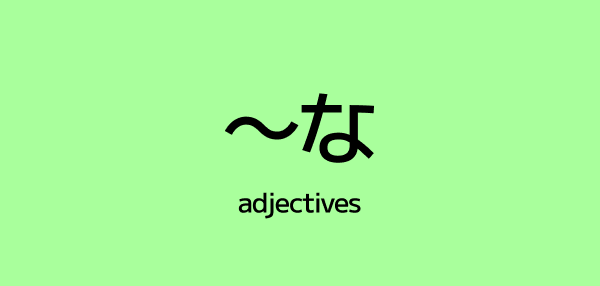 E Rank
E Rankな-Adjectives in Japanese – Forms, Conjugation, and How They Work
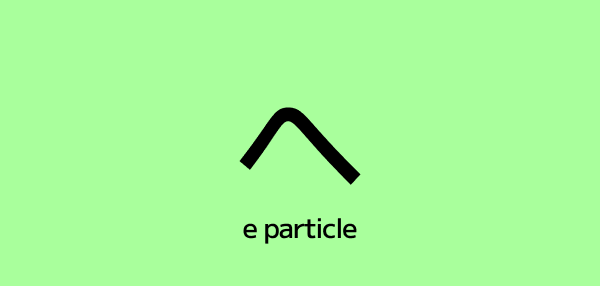 E Rank
E RankThe へ (E) Particle
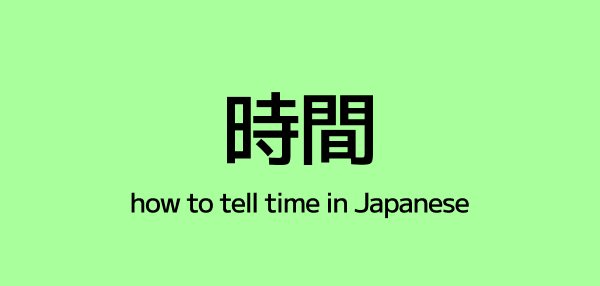 E Rank
E RankHow to Tell Time in Japanese – Hours, Minutes, and Sound Changes
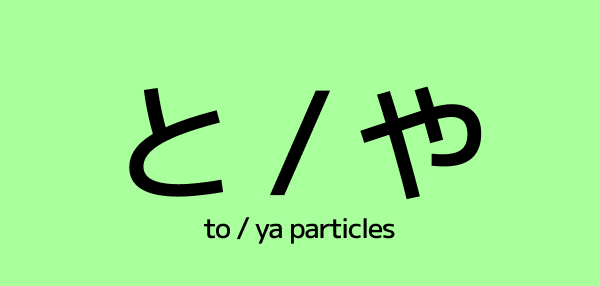 E Rank
E RankThe と / や (to / ya) Particles
The Japanese particles 「と」 and 「や」 both mean “and,” but one lists precisely while the other gives examples. Learn how to use each correctly in conversation and writing.
